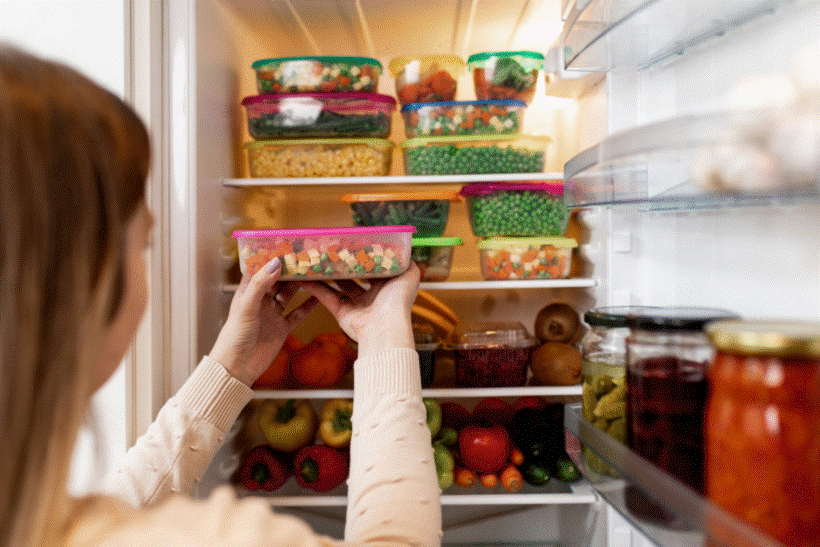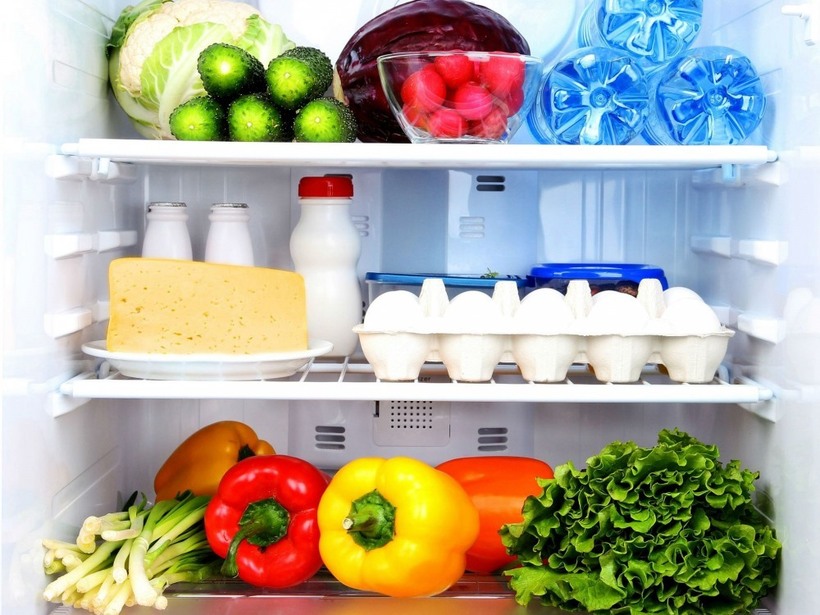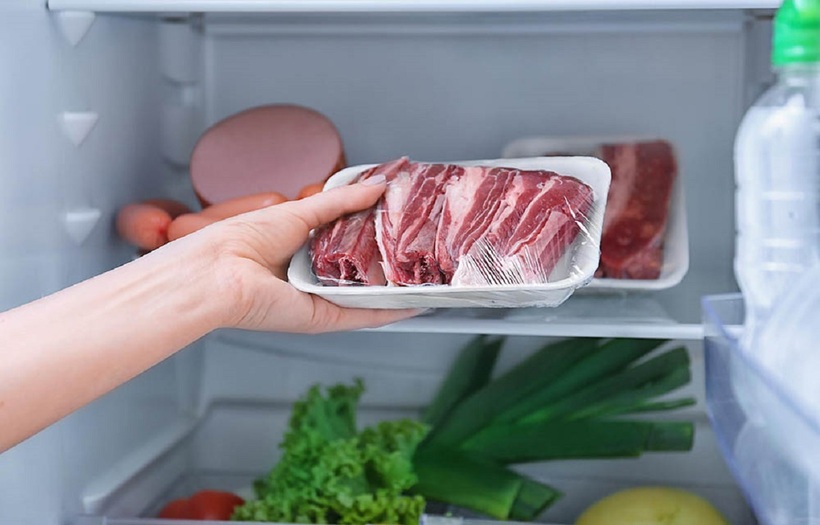1. Sort Before You Put It in the Fridge
The first thing you need to remember is to sort your food before putting it in the fridge.
For meat and fish
First, wash the meat or fish and pat it dry. Next, divide each portion of food into a corresponding zip-lock bag or food storage container.
Dividing the food will help you avoid having to defrost large amounts of food at once, which can affect the quality of the food the next time you use it.
Finally, place the divided food in the refrigerator’s fresh food compartment (2-4 degrees Celsius) if you want to use it within 3-5 days, or in the refrigerator’s freezer compartment (around -18 degrees Celsius) to use within 3 months, or even up to 12 months, but the sooner you use it, the better.

Sorting food helps keep the refrigerator organized, neat, and clean.
For vegetables
Do not wash vegetables before storing them unless you need to use them right away. Remove any wilted or bruised parts, especially do not let the vegetables get wet.
Then, divide the vegetables into manageable portions in a zip-lock bag or plastic bag (with ventilation holes) and place them in the refrigerator’s vegetable compartment. This compartment is specially designed with the right temperature and humidity to keep vegetables fresher.
For fruits
With fruits, sort them into 2 groups: fruits with the skin intact and fruits with the skin removed.
For fruits with intact skin: Remove any damaged stems or spoiled fruits, then use a clean, dry cloth to wipe the surface of the fruit. Finally, place the fruit in a zip-lock bag with ventilation holes and place it in the refrigerator’s fresh food compartment at 3-5 degrees Celsius.
For fruits with the skin removed: Store in a sealed food storage container with a lid, place in the refrigerator’s fresh food compartment at an optimal temperature of 3-5 degrees Celsius, and consume as soon as possible.
For cooked food
For cooked food, let it cool before placing it in a food storage container, then seal it and place it at a temperature of 2-4 degrees Celsius. The reasonable usage time is within 3 days. You can also divide the food into smaller portions before storing it for easier use.

Do not store food in the refrigerator without wrapping it in a bag or dividing it into containers.
2. Do Not Overfill
Overcrowding the refrigerator can affect the circulation of cold air, causing the food to cool unevenly. This will cause food to spoil easily due to insufficient cooling.
3. Clean the Refrigerator Regularly
The environment inside the refrigerator can still have mold and bacteria from food if you do not clean the refrigerator regularly.
Cleaning the refrigerator helps the refrigerator’s motors to rest while removing any remaining food residue. Cleaning also removes odors and creates a fresh atmosphere inside the refrigerator.
4. Do Not Keep Food for Too Long
Many studies have shown that the longer meat and fish are stored in the refrigerator, the more their nutritional value decreases and the more harmful substances they can produce.
Furthermore, the freezing and thawing process loses up to 1/3 of the soluble fat in meat.
On average, each freezing-thawing cycle can reduce food nutrients by up to 20%. Accordingly, depending on the type of food, consider how long to store it in the refrigerator.

Food should be consumed as soon as possible.
5. Set the Correct Temperature
Each food group needs to be stored at the right temperature, especially vegetables, which are usually stored in the fresh food compartment at 1-4 degrees Celsius.
Fresh food such as seafood, meat, and fish can be kept at 1-3 degrees Celsius or in the freezer compartment at -18 degrees Celsius.
Refrigerator Odors’>Uncovering 10 Astonishing Methods to Neutralize Refrigerator Odors
Ten Strategies to Streamline Your Cooking Process
Are you a busy housewife looking for ways to save time in the kitchen? Did you know that flossing can also help you out? Check out these 10 tips to help you quickly and easily prepare delicious meals for your family. Learn how to peel garlic in 10 seconds and cut cherry tomatoes quickly for a healthy and tasty meal.
4 Strategies for Storing Chili for One Month
Do you want to enjoy the fresh, spicy flavor of chili peppers all month long? Look no further! This article provides tips and tricks for storing chili peppers so that they stay fresh and flavorful for up to a month. Learn how to best preserve your peppers and savor their zesty taste for weeks to come.














